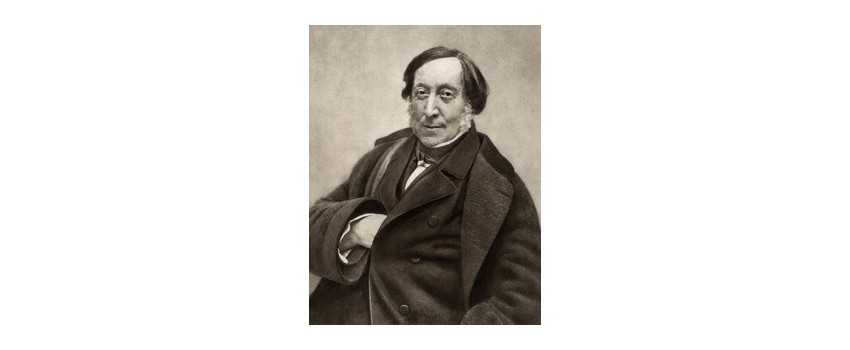Rossini: Un larme & Allegro agitato (Carus)
Rossini Un larme, Theme et Variations; Allegro agitato (Carus)
Gioachino Antonio Rossini, born on February 29, 1792, was an Italian composer renowned for his contributions to the classical era of music. His innovative and vibrant compositions, particularly in the realm of comic opera, have left an indelible mark on the musical landscape. This article delves into the life and music of Rossini, exploring his early years, his rise to prominence, and his enduring legacy.
Early Years and Musical Upbringing
Rossini was born into a family deeply immersed in the world of music. His father, a clarinet player, and his mother, an opera performer, fostered a musical environment that would shape Rossini's future. Recognizing his talent from a young age, Rossini's father taught him to play the horn and sing. At the tender age of seven, Rossini made his debut in an opera, showcasing his prodigious abilities. By seventeen, he had already composed his first symphony, marking the beginning of his remarkable journey as a composer.
The Rise of a Composer
In the early 19th century, Rossini began his career as an opera composer. His talent and creativity quickly propelled him to the forefront of the music scene. Notably, his comic operas garnered immense popularity and critical acclaim. Among his most celebrated works are "The Barber of Seville" (1816) and "Cinderella" (1817), both of which became enduring classics. These vibrant and humorous compositions showcased Rossini's masterful ability to blend captivating melodies with witty storytelling.
Artistic Directorship and Influences
In 1815, Rossini was appointed as the artistic director of the Teatro San Carlo in Naples, a prestigious position that further solidified his reputation as a groundbreaking composer. During this period, Rossini's compositions were influenced by the works of other renowned composers, such as Mozart. While known primarily for his comic operas, Rossini also ventured into the realm of serious opera, drawing inspiration from Mozart's masterpiece, "Idomeneo." This shift in Rossini's focus demonstrated his versatility and willingness to explore different musical genres.
The Parisian Interlude
Rossini's artistic pursuits led him to Paris, where he embarked on a new chapter in his career. In the vibrant capital of France, he designed an opera house and presented his final production, "William Tell." This grand opera showcased Rossini's ability to create intricate and emotionally resonant compositions. However, it was during this time that Rossini experienced a significant change in his personal life as well. His first wife, Isabelle Colbran, passed away in 1845, marking the end of an era for the composer.
Musical Evolution and Legacy
Following his wife's passing, Rossini found solace in the company of Olimpia Pelissier, whom he later married. As his life progressed, he gradually distanced himself from opera composition, eventually abandoning it altogether at the age of 37. Despite his departure from the world of opera, Rossini's legacy endures. His contributions to both comic and serious opera have left an indelible mark on the genre, influencing countless composers who followed in his footsteps.
Conclusion
Gioachino Antonio Rossini's life and music encompassed a rich tapestry of talent, creativity, and innovation. From his early years as a child prodigy to his ascent as a renowned composer, Rossini captivated audiences with his vibrant and engaging compositions. His mastery of comic opera, in particular, showcased his ability to infuse music with humor and wit. While he may have veered away from opera composition later in life, Rossini's influence on the classical era of music remains unparalleled. His legacy serves as a testament to the enduring power of his compositions and his lasting impact on the world of music.

Rossini Un larme, Theme et Variations; Allegro agitato (Carus)